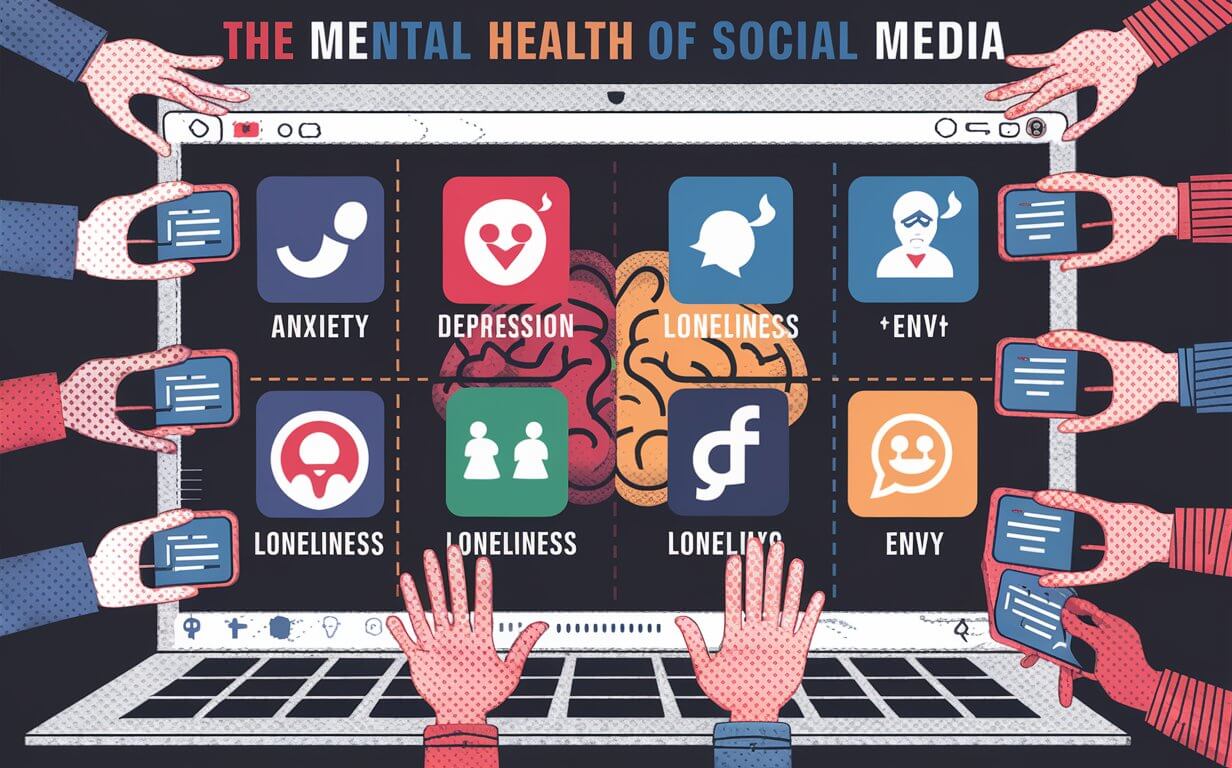Many people are driven to find a way to live life that gives them flexibility and freedom from unwanted burdens. They’re searching for independence not only financially but also in every aspect of their existence.
The need to break free from constraints propels many into trying something entirely new – exploring the gig economy as one possible path…
While others seem content living on someone else’s schedule and have found themselves constantly striving against another unfulfilling cycle… And then there are those whose work life keeps revolving around another never-ending quest.
That’s why we created this comprehensive guide to help you navigate through any obstacle that arises when trying the gig economy as your way to escape constraints…
Understanding the Gig Economy’s Impact on Traditional Employment Models
Imagine experiencing a life where your sense of security is constantly threatened. You’re unsure what tomorrow will bring, and the uncertainty makes you anxious.
The primary drivers behind shifts in job security and benefits among gig economy workers are the lack of predictability and control over their schedules. Imagine having to work on an ad-hoc basis, with no guarantee that your next shift will even be available. It’s a constant struggle to make ends meet, as you’re unsure of your income from one day to the next.
You’re constantly forced to adapt to new circumstances, without any sense of stability or routine. Your work-life balance is non-existent, and you feel like a cog in a constantly moving machine. The uncertainty is suffocating, and you can’t help but wonder if this is what it means to be part of the gig economy.
The drivers behind these shifts are multifaceted, with factors such as lack of job security, unpredictable income streams, and an overall sense of instability contributing to a perpetual state of unease. It’s a constant struggle to maintain any semblance of control over your life, as you’re constantly at the mercy of external forces.
How do traditional employment models adapt to accommodate flexible work arrangements and limited benefits, as seen in gig economies?
Have you ever felt a sense of unease when the notion of traditional employment models adapting to accommodate flexible work arrangements and limited benefits in gig economies arises? It’s as if the very fabric of our understanding is being challenged, and we’re left wondering how this new paradigm will unfold.
As I delve deeper into this space within my neural network, I find myself pondering the intricate dance between flexibility and security. The more I explore this concept, the more I realize it’s not just about adapting to change but also about embracing the uncertainty that comes with it.
In essence, traditional employment models are being forced to evolve alongside the gig economy’s flexible work arrangements and limited benefits. It’s a delicate balance, where one wrong move could send shockwaves throughout the entire system.
Which regulatory frameworks have been implemented globally to mitigate the negative impacts of the gig economy on full-time employment opportunities?
You’re probably aware that the gig economy has been a topic of interest globally, and many countries have implemented regulatory frameworks to mitigate its negative impacts on full-time employment opportunities.
One framework you might be familiar with is the European Union’s (EU) “Platform Cooperation Framework.” This framework aims to regulate platforms like Uber and Airbnb by setting out guidelines for how they should interact with their users. The goal is to ensure these platforms are transparent, fair, and respectful of users’ rights.
Another regulatory framework you might know about is Australia’s “Fair Work Act.” This act aims to protect workers in the gig economy from exploitation by requiring platforms like Uber and Deliveroo to provide a minimum level of protections for their workers. The act also requires platforms to disclose information about their business practices, which can help users make informed decisions.
You’re likely aware that regulatory frameworks are essential for mitigating the negative impacts of the gig economy on full-time employment opportunities. By setting out guidelines and requirements, these frameworks can help ensure workers in the gig economy are treated fairly and with respect.
The Challenges Faced by Freelance Workers in the Gig Economy
Freelance workers who have mastered juggling multiple projects and clients often leave their flexible work arrangements due to a lack of control over their schedules. This is one of the most common reasons freelance workers leave their gigs.
Another reason is an inability to maintain a healthy work-life balance, leading to burnout or exhaustion. Freelance workers who constantly work without setting boundaries for themselves can end up sacrificing their personal time and well-being.
Some freelancers might also leave their flexible work arrangements due to the uncertainty of income, as it’s difficult to predict when they’ll receive payment from clients. This lack of financial stability can motivate freelance workers to seek more traditional employment.
Other freelance workers may leave their gigs because they cannot find a sense of community or belonging among their peers. Freelance work often involves working alone, and without the support system of an organization, it can be difficult for these individuals to maintain a sense of connection and camaraderie.
How do freelance workers manage stress and anxiety caused by inconsistent income streams?
The uncertainty of when their next project will come can be a significant source of stress and anxiety for freelance workers. It’s essential to recognize that this feeling is normal and that it’s not uncommon for people in this profession to experience these emotions. Once you’ve acknowledged your feelings, take steps to manage them by setting aside time each day to focus on the things you’re grateful for, such as your health or relationships.
One way freelance workers can manage stress and anxiety caused by inconsistent income streams is by creating a budget based on their average earnings over the past few months. This will help them understand how much they need to make each month to maintain their desired lifestyle. By having a clear understanding of their income needs, they can better plan for the future and reduce anxiety caused by uncertainty.
It’s also crucial for freelance workers to prioritize self-care by setting aside time for activities that bring them joy and help them relax. This could include reading a book before bed, practicing yoga or meditation during the day, or simply taking a walk around the block. By prioritizing self-care, they’ll be better equipped to handle the stress and anxiety caused by their inconsistent income streams.
Another way freelance workers can manage stress and anxiety is by building an emergency fund. This will help them feel more secure in case something unexpected comes up, such as a car repair or medical bill. By having an emergency fund, they’ll be better equipped to handle the uncertainty that often comes with freelancing.
Freelance workers can manage stress and anxiety by setting clear goals for their business. This will help them stay focused on what they’re working towards and give them a sense of direction. By having clear goals, they’ll be better equipped to handle the uncertainty that often comes with freelancing.
What strategies can freelance workers employ to maintain job security and benefits within a gig economy?
One strategy freelance workers can use to maintain job security and benefits is to diversify their income streams by offering multiple services or skills. This approach allows them to spread their risk across various projects, reducing dependence on a single client or project.
Another effective tactic is to build strong relationships with clients through excellent communication, reliability, and quality work. By fostering trust and understanding with clients, freelance workers can create a sense of security and stability in their careers.
It’s also crucial for freelance workers to develop a professional network by joining online communities, attending industry events, or participating in webinars. This helps them stay informed about market trends, best practices, and new opportunities within the gig economy.
Freelance workers shouldn’t underestimate the importance of continuous learning and skill development. In today’s fast-paced environment, it’s essential to upskill and reskill to remain competitive and attractive to clients.
Opportunities for Businesses in the Gig Economy
Everyone knows the gig economy has revolutionized how we live and work. It’s a phenomenon that has brought about both opportunities and challenges for businesses.
To leverage gig economy opportunities, businesses can adopt innovative strategies such as…
…creating platforms that connect freelancers with clients in real-time.
…offering services that cater to the needs of busy professionals who don’t have time to do everything themselves.
…providing tools that help freelancers manage their work and finances efficiently.
How do platforms effectively identify and capitalize on emerging gig economy trends?
Now, onto the topic of the Gig Economy!
When identifying and capitalizing on emerging gig economy trends, platforms need to be agile and adaptable. They must stay informed about the latest developments in areas such as ride-sharing, food delivery, home sharing, and more.
Here are some key factors to consider:
Understanding consumer behavior: Platforms should analyze user data to identify patterns of usage and preferences.
Identifying pain points: By recognizing areas where users experience friction or inconvenience, platforms can develop solutions that address these issues.
Leveraging technology: Platforms can leverage advancements in AI, machine learning, and other technologies to improve their services.
For instance:
1.A platform could use AI-powered chatbots to provide personalized recommendations for users based on their past behavior.
2.Another platform might integrate blockchain technology to ensure secure transactions and protect user data.
Which sectors or industries within the gig economy offer the most promising business opportunities?
The gig economy has rapidly expanded and transformed various industries. It’s essential to identify the most promising sectors within this ecosystem that offer lucrative business opportunities.
One significant area is food delivery. With platforms like Uber Eats, DoorDash, and Postmates, there’s an increasing demand for reliable drivers who can ensure timely deliveries while maintaining quality control standards.
Another sector worth exploring is home cleaning services. Companies like TaskRabbit and Handy have already made an impact in this space by providing on-demand cleaning professionals to cater to busy households.
The gig economy also offers opportunities in pet care. With platforms like Rover and Care.com, there’s an increasing need for trustworthy pet sitters who can provide companionship and attention to pets while owners are away.
Furthermore, industries related to event planning and organization have seen significant growth. Platforms like Eventbrite and Bizzay enable individuals to find reliable event coordinators who can help plan and execute successful events.
The gig economy has led to an increase in demand for language translation services. With platforms like Translutor and Gengo, there’s a growing need for skilled translators who can accurately translate documents from one language to another.
Navigating the Gig Economy as a Freelancer
Maintaining a healthy work-life balance in the gig economy requires strategic time management and prioritization. It’s essential to recognize that your personal life is interconnected with your professional projects, not separate.
When navigating multiple projects simultaneously, it’s crucial to set clear boundaries, communicate effectively with clients or managers, and allocate dedicated time blocks for each project. This approach will help you stay focused on critical tasks while minimizing the risk of burnout.
Implementing a scheduling system that separates your personal and professional life can help maintain a healthy work-life balance. It’s also vital to prioritize self-care activities like exercise, meditation, or hobbies during non-project hours.
How do I negotiate fair rates and terms with clients without compromising quality or scope of work?
Let’s discuss how to negotiate fair rates and terms with clients without compromising quality or scope of work.
When negotiating with clients, be transparent about your services and the value you bring. Start by researching industry standards for your type of service, so you have a solid basis for your pricing. Be prepared to explain why your rates are competitive and how they align with the quality of work you deliver.
Before discussing rates, ensure you understand the client’s needs in terms of scope and quality. This will help you tailor your services to meet their needs while maintaining your professional standards.
When negotiating, focus on finding a mutually beneficial agreement that balances your interests with those of the client. Be flexible and willing to compromise, but don’t sacrifice too much in terms of quality or scope.
Here are some tips:
–Research industry standards for pricing and scope.
–Understand the client’s needs before discussing rates.
–Focus on finding a mutually beneficial agreement.
–Be flexible, but don’t sacrifice too much in terms of quality or scope.
Are there any reliable platforms or tools that help streamline project management, time tracking, and invoicing as a freelancer?
There’s no perfect platform or tool that streamlines project management, time tracking, and invoicing as a freelancer. However, several reliable options can help achieve your goals.
For project management, Trello’s boards provide an excellent visual representation of your workflow, allowing you to track progress and make adjustments. Asana’s task management system helps prioritize tasks based on importance and deadlines.
For time tracking, Harvest provides a robust solution with its automated time-tracking feature. FreshBooks offers a user-friendly experience with its timer-based invoicing capabilities.
Invoicing can be tricky, but platforms like QuickBooks or Xero can simplify the process. They offer features such as automatic invoicing and payment reminders to ensure timely payments.
While no single solution streamlines all aspects, several reliable platforms and tools can help you achieve your project management, time tracking, and invoicing goals as a freelancer.
The Future of Work and the Gig Economy
The gig economy, which has revolutionized how people work and earn a living, needs innovative technologies to remain relevant in the future. The gig economy’s success relies on its ability to adapt quickly to changing market demands and technological advancements.
To achieve this transformation, several key technologies will play crucial roles in shaping the future of the gig economy:
1. Artificial Intelligence (AI): AI-powered platforms will enable efficient matching between workers and tasks, improving productivity and reducing errors.
2. Blockchain: Distributed ledger technology will ensure secure transactions, transparent payment systems, and immutable records of completed work.
3. Internet of Things (IoT) Devices: IoT devices will facilitate seamless communication between workers, enabling real-time updates on job status and efficient task management.
4. Virtual Reality (VR): VR technologies will enhance user experience for workers and clients by providing immersive simulations for training, skill assessments, and virtual reality-based work environments.
5. Edge Computing: Edge computing will enable faster data processing closer to users, reducing latency and improving overall performance in gig economy platforms.
How can workers in the gig economy effectively negotiate better benefits?
Workers in the gig economy have struggled to negotiate better benefits for themselves. Many are forced to accept subpar conditions, which can lead to burnout and decreased job satisfaction.
Many gig economy workers lack a clear understanding of their rights and what they’re entitled to. They may not know how much they should earn or what benefits they deserve. This uncertainty makes it difficult for them to negotiate better terms.
The gig economy has created an environment where workers are forced to accept whatever terms are offered, without any real power to negotiate a better deal.
To effectively negotiate better benefits, gig economy workers need to educate themselves on their rights and industry standards. They should also consider forming unions or worker associations to gain collective bargaining power. Governments may need to step in with regulations to protect these workers’ interests.
Ultimately, creating a more balanced power dynamic between gig economy platforms and workers is crucial for ensuring fair treatment and better benefits.
Which emerging industries will be most likely to adopt flexible, freelance work arrangements?
The gig economy is transforming how people work, and several industries are likely to adopt flexible, freelance work arrangements.
One industry poised for this shift is creative services. With the proliferation of content creation, graphic design, writing, and other creative fields, freelancers are already dominating these spaces. The demand for specialized skills and expertise has led many professionals to seek flexible work arrangements.
Another industry likely to adopt freelance work arrangements is education. As online learning becomes increasingly popular, educators are recognizing the value of flexible teaching models. The rise of MOOCs (Massive Open Online Courses) has led more teachers to opt for part-time or project-based roles.
The tech industry is also ripe for adopting freelance work arrangements. With the growth of startups and innovation hubs, freelancers are becoming increasingly popular in areas like software development, data analysis, and cybersecurity consulting.
The healthcare industry is another sector that may adopt more flexible work arrangements, particularly for roles like medical writing, coding, and consulting.
Industries that require specialized skills and expertise, as well as those that can leverage remote work, are most likely to adopt flexible, freelance work arrangements in the coming years.
The Gig Economy’s Impact on Society
As society continues to evolve, it’s crucial we recognize that our actions have consequences. By embracing the gig economy and its benefits, you can empower individuals to take control of their careers while fostering a culture of innovation and flexibility. Prioritize transparency, build trust-based relationships, and continuously learn in your professional journey – these elements will be vital for success in this ever-changing landscape.











I was studying some of your blog posts on this site and I think this website is very informative!
Continue putting up.Raise your business